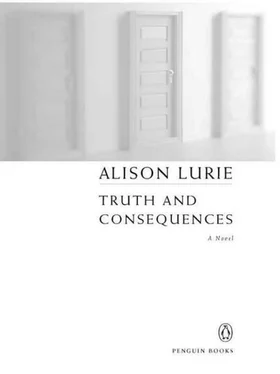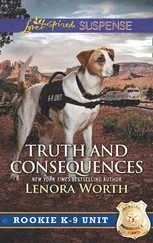“You think they’re going to be happy?”
“Oh yes, probably. Boringly happy. Or maybe eventually they’ll begin to bore each other, who knows?”
“And will you really be happy?”
“Maybe. Sometimes.”
“I thought you didn’t believe artists should be happy.”
“I don’t. Not as a steady thing. The world is a bad place for us, mostly. That’s why we mustn’t miss anything good that comes along. And there’s pleasure sometimes, there’s joy—like today. I wasn’t sure you’d even speak to me.”
“Probably I shouldn’t have,” Alan said.
“Too late now.” Delia laughed and came closer. “Let’s drink to that.” She lifted the remaining champagne glass from where she had set it on an outcrop of artificial ruined wall, sipped, and handed it to Alan. A few bubbles still rose unhurriedly through the liquid, whose color, he thought, could have been described as pale gold—or as piss. “It’s hardly gone flat at all,” she said.
Alan drank. “No. Only a little.” He looked across the lawn toward the party. “I think we’d better get back,” he said.
“Yes.” Delia sighed. “But I’ll call you soon, so we can arrange for you to come to Rye.”
Alan said neither yes nor no, but a heavy dark feeling—or was it light, was it joy?—came over him that he was fated to go to Rye, fated to build Delia’s ruined Temple of Venus, to join her in her ruin, or whatever it was, maybe for the rest of his life.
“You know,” she murmured as they began to cross the lawn, “you could do what I did, if you wanted to. I’ve met so many women lately—they’re widowed or divorced, in their forties and fifties, but quite attractive, and very well off. They try to keep up their spirits, but their children have grown and gone, and they’re real lonely and sad. They don’t know what to do with themselves. Most of them would jump over the moon for a man like you, an artist, a genius.”
“A cripple,” Alan said.
“But that just makes it more romantic. Wally loves my migraines, they appeal to his protective instincts. It would be the same for you—artists always have a tragic wound, to go with their invincible bow, you know. They need to be taken care of. Anyhow, that’s what my new girlfriends think. When you’re in Rye I’ll invite two or three of them to lunch, and you’ll see.”
“I don’t want to see,” Alan said, stopping and turning to stare at Delia. In her floating white dress, overlaid with gold by the low sun, like the grass and the gray stones of the tower behind her, she looked almost unearthly. “Who are you, Dilly, what are you?” he asked, catching hold of her arm. “Are you a demon come to tempt me to sin?”
“No, I’m your good angel, like I always was,” Delia said. “I’m your true love.” She gave him a quick, blazing look. Then she laughed and walked on. They were near enough to the terrace now to be seen, and soon many well-dressed, gold-tinged people began to surge toward them: greeting them, congratulating them, separating them.







![Кэмерон Доки - Правда и ее последствия[Truth and Consequences]](/books/79610/kemeron-doki-pravda-i-ee-posledstviya-truth-and-con-thumb.webp)




